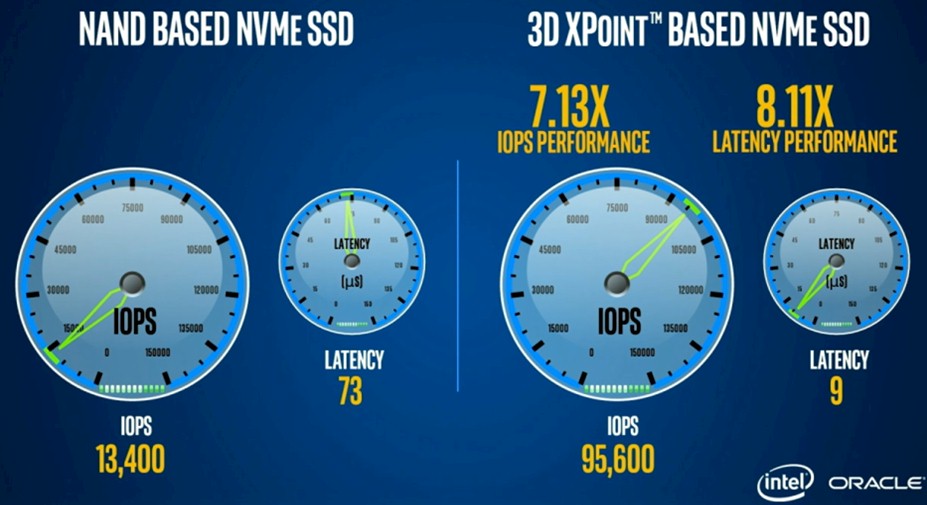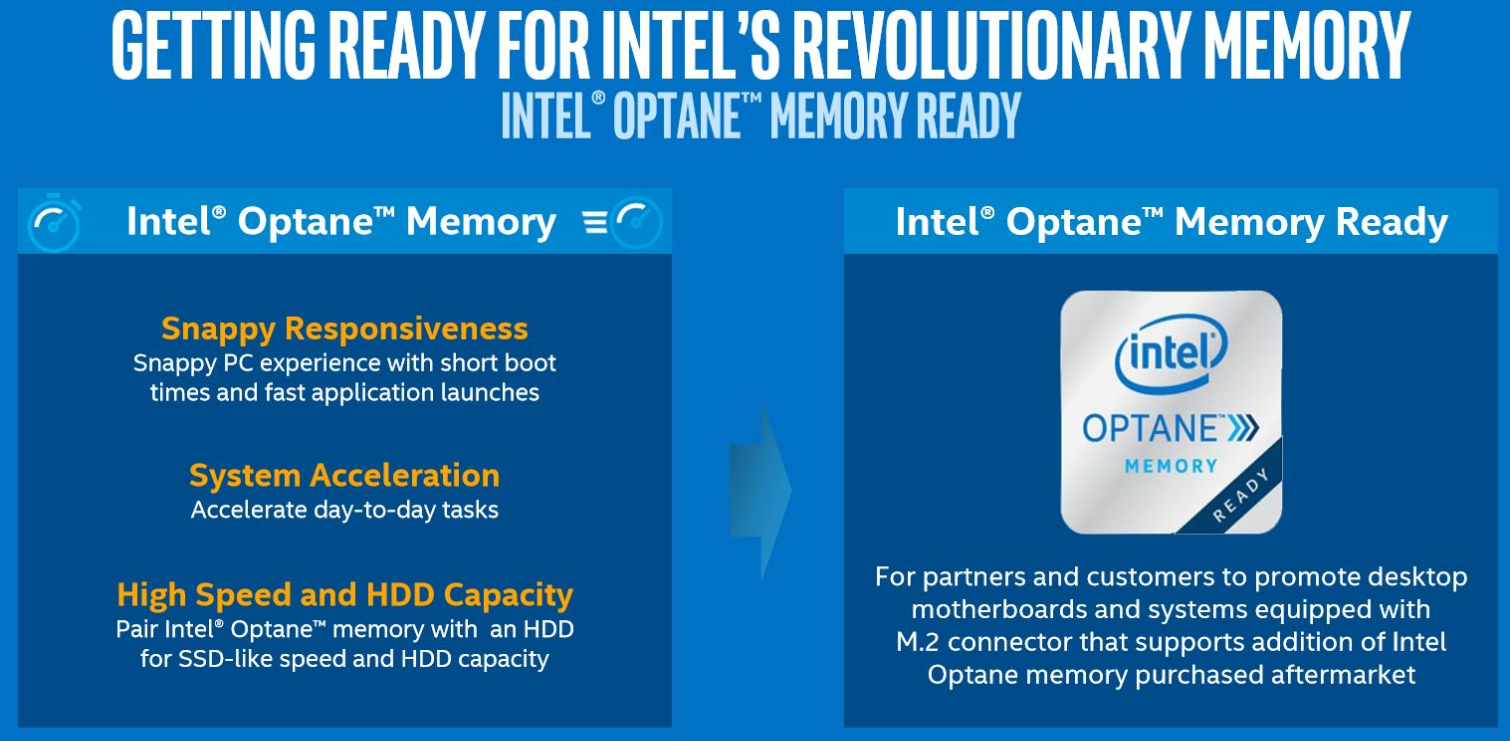Intel Optane AMA Reader's Recap, Storage, Caching and Memory Explained
Retail Positioning, Consumer Pricing, Replacing DRAM
Earlier this week the Tom’s Hardware Community Team held a 24 hour AMA session with Intel's Optane technology team about their Optane products and 3D XPoint technology in general. We ended up getting a number of excellent questions on the subject, so we wanted to post a recap of the AMA for our readers who aren't always active in the forums. Thanks again to both the Intel team for taking the time to answer reader questions, as well as the AT Forums community team for organizing this.
Before diving in, be sure to enter our giveaway for the Intel Optane SSD 905p 960GB. Our giveaway runs until April 5th. Please see the contest entry page for a full list of rules and ways to enter.
Intel Optane Technology Team
Chris Tobias, Director, Intel Optane Team
James Myers, Director, Data Center Storage Solutions Architecture
Roger Corell, Marketing Manager
Avinash Shetty, Senior SSD Strategic Planner and Product Line Manager
Mark Henderson, Storage Technology Marketing Engineer
Q: I think the idea behind using an Optane cache drive is great. It's kind of like Windows page file but massively boosted. However I wanted to know your thoughts on PC Manufacturers' implementation of it. Specifically many are advertising PCs and laptops with "20GB of RAM" and then in the fine print "16GB Optane, 4GB DDR4." That's a bit unscrupulous, and additionally I feel like they are passing off systems with a lower than optimal amount of system ram to unsuspecting buyers. I even saw one with an i7 in it! Optane is great, but its not Ram. What are your feelings about this, have you contacted the manufacturers to stop these practices?
A: Intel Optane memory is a unique technology that bridges a gap between ‘memory’ and ‘storage.’ Like RAM it sits within the PC memory hierarchy. By placing commonly used data and programs closer to the processor, Intel Optane memory allows the systems to access this information more quickly and improve overall system responsiveness. Intel Optane memory cannot replace DRAM entirely. However, these two memory technologies complement each other within the PC.
Intel does provide a recommended fact tag guidance for its products. For example, for Intel Optane memory, we recommend calling out the entire capacity and the memory technology in the memory line.
Memory : 20GB Memory : 16GB Intel Optane Memory + 4GB DDR4 DRAM or
Memory : 16GB Intel Optane Memory + 4GB DDR4 DRAM or
Intel Optane memory and DRAM are called out separately without total.
Get Tom's Hardware's best news and in-depth reviews, straight to your inbox.
Fact tag positioning is the retailer’s decision. Guidance provided as-is; with no warranties or indemnities, express or implied.
Q: Will full Optane functionality ever be supported on non Intel platforms? Like AMD Ryzen and future ARM Snapdragon Windows 10 machines?
A: Intel Optane SSDs conform to the PCIe and NVMe specifications. The Intel Optane memory client solution is only supported on Intel processors.
Q: What do you like the most about working on, and developing, Intel Optane products?
A: The cool, smart people we all get to work with--and the opportunity to drive change in the computing industry. The platform architecture has been around for decades and it's finally shifting, as we blur the lines between memory and storage! Plus, we get to wear cool Optane swag! #OptaneBowtie
Q: Are there plans to bring down of the costs of these current drives and 3DXPoint in general in short/long term? I use a 900P 280GB myself and highly recommend them to those interested, but compared to the common M.2 NVMe NAND based drives, it's hard to explain to someone the benefits of Optane technology given the current pricing vs. M.2 NAND drives for example. A lot of folks just think all SSDs are about the same other than speed advertisements and just buy what's on sale instead of what may actually benefit their usage scenario.
A: Thank you for understanding that Optane is a workload benefit product. To further answer your question, just take a look at what Tom's Hardware said about the Intel Optane SSD 905P. To quote from the article:
" . . .It's worth the price because it is the fastest SSD on the market. It doesn't matter if you primarily play games or render nuclear simulations for the Pentagon: this is the uncontested performance champion."
Thank you for championing Intel Optane technology! Keep rocking your Optane with pride!
Q: Does Intel foresee a point in the future where Optane is fast enough to replace DRAM altogether?
A: We don't see DRAM going away completely at this point, but we're open to new ideas. To see what we've done on the data center side of things, head over to Accelerate with Optane and use it as a development platform to see what you can do. If you want to try Intel Optane to see what it can do to extend memory in virtualization or MySQL, check out this link. And we continue to innovate on the client.
Current page: Retail Positioning, Consumer Pricing, Replacing DRAM
Next Page Optane for Servers, Older PCs, and the MainstreamJoshua Simenhoff was a former Tom's Hardware community manager. He covered a wide range of topics, including PC hardware how-tos and articles with a focus on community engagement. His expertise lay in connecting with readers and providing practical, informative content about the latest technology.

